The The’s Matt Johnson: ‘I found more sincerity inside a 12-step programme than any church’
The Eighties icons have announced their first album in 24 years. Ahead of its release, their longtime leader invites Michael Hann over to his Shoreditch haunt to discuss the record, his own near-death experience, the hipsterfication of Shoreditch, and finding faith and ‘magic’ in unexpected places
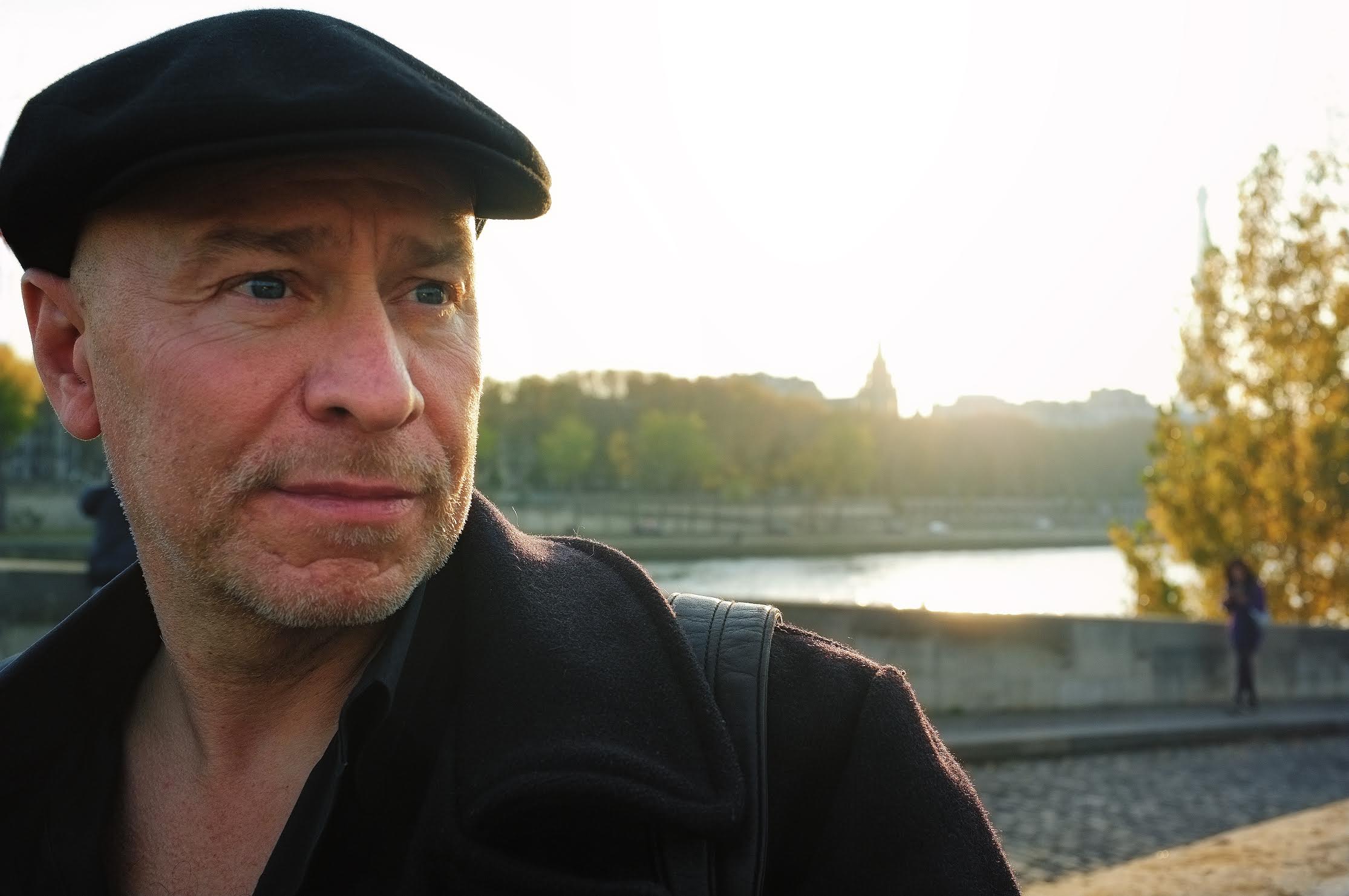
You enter through an unmarked black door to the left of the official entrance. From there, it’s through a bare concrete space and up some steps. Past a door and into a room bursting with boxes and flight cases and folders, then up a spiral staircase and into another room. This one is filled with guitars and amplifiers and records and CDs. It’s a little less cluttered, and the purpose of the place more evident.
“It gets tidier the further up we go,” says The The frontman Matt Johnson, 63 years old and dressed on a hot late August morning as though he’s just arrived to open up his nightclub for the Saturday trade: pinstripe black shirt, black trousers, and buckled boots that disappear far up his legs. Another spiral staircase to the fourth floor opens up to a home. The piles now are of books, and shelves are groaning with them. A long run of old Graham Greenes fills most of one shelf. Johnson makes for the brown leather sofa and matching armchair. I presume the whole place extends further up – for he has to sleep somewhere, and this place in Shoreditch in east London has been Johnson’s workplace and home for more than four decades.
For 45 years, Matt Johnson has been the sole constant of The The, which has operated as a shifting collective playing his songs – its members at various times including the composer Simon Fisher Turner, Johnny Marr fresh from the Smiths, and former David Bowie bassist Gail Ann Dorsey. Currently, Johnson has a settled four-piece band behind him.
In the early Eighties they were perhaps best known for a couple of gorgeous minor hits – the melancholy but uplifting synth-pop gem “This Is the Day” and “Uncertain Smile”, a near-perfect psychedelic guitar pop song. Then, in 1986, on their second record, Infected, Johnson reemerged as a prophet of catastrophe. Its first single “Heartland” portrayed a Britain of “raped” pensioners and “piss-stinking shopping centres” before its repeated conclusion that “this is the 51st state of the USA”. Infected didn’t get much cheerier thereafter. It cemented Johnson’s image as pop’s harbinger of doom, even as he appeared on Top of the Pops in front of dancing teenagers.
“I probably created this problem for myself,” Johnson says now, legs crossed, an arm across the back of his sofa. “I’m seen as a political songwriter, but I write mainly about love and life and loss. The thing is with politics, it can be too specific, and it comes across as preaching, which was not my intention.”
For the last 24 years, there has been no album of new songs by The The – political, personal, or otherwise – just quirky and unusual side projects, barely seeking an audience. (In 2018, he played the first The The gigs in 16 years.) Now, though, there is a new album, Ensoulment, a beautiful and gentle record on which love and loss are the predominant themes – although the opener, “Cognitive Dissident”, is very much the version of Johnson who wants you to eat your greens before pudding, and a soulful ballad called “Kissing the Ring of POTUS” suggests some continuity with the Johnson who wrote “Heartland”.
It’s an album of guitars, both acoustic and electric, and of shifting moods. The presence of Barrie Cadogan as guitarist and co-writer might make one expect a reprise of the mood on Mind Bomb, the 1989 album with Marr on board, but it has a more timeless sound than that, woody and burnished, like Johnson’s furniture.
The most striking songs are the most personal. Take “Linoleum Smooth to the Stockinged Feet”, written after Johnson was admitted to Homerton Hospital at the start of Covid to have a pharyngeal abscess removed from his throat. Johnson recalls his time in the hospital spent in an opiate fog, with no visitors, in a darkened ward, cold and confused. “Actually, maybe I’ve died,” he says. “I thought that’s what had happened. I’m dead. I’m now in that waiting room between heaven and hell.”
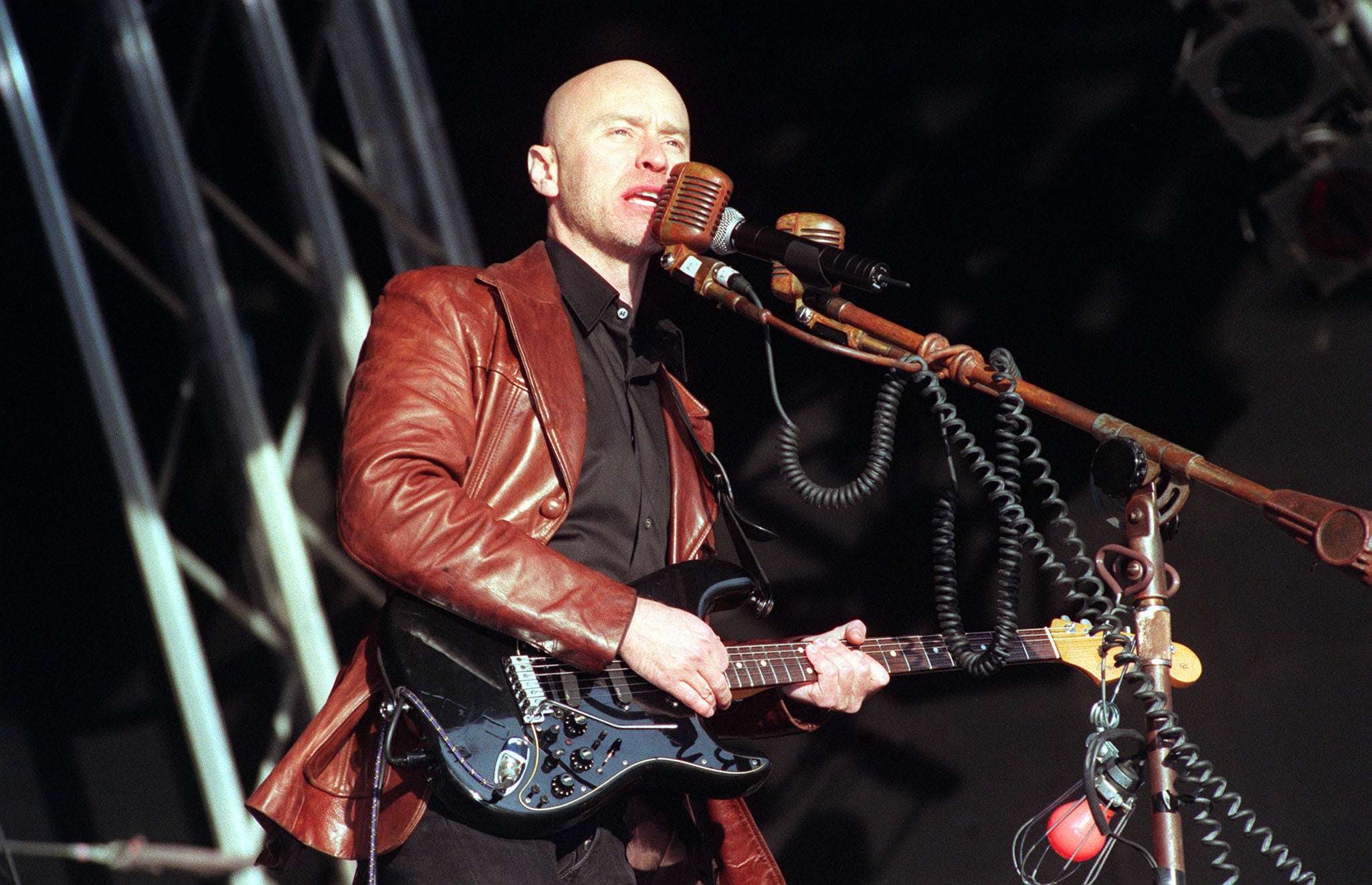
“I was determined to get something out of it. Part of my instinct was, I’ve got to keep the lymphatic system moving. So drink loads of water, keep moving, flush this poison out. I had the surgical stockings on, the little dressing gown and the drip, and I’d be walking through these dark corridors.” He wrote down his hallucinogenic nighttime reveries and ended up with a song, albeit at some cost. “It’s certainly not something I want to go through again,” says Johnson. “It was deeply unpleasant.”
Johnson couldn’t sing for six months (the first time he did, it was a rendition of “Suspicious Minds” at a karaoke party), and it took a long time to recover his strength. At the time, he and his family had temporarily moved out of Shoreditch to have work done and were living in a flat in the Barbican. “But the few months I had with my youngest son, just wandering – I was walking very slowly – holding hands, going to the lakes in the Barbican and we’d sit feeding fish in the pigeons, I felt so happy and alive,” he says. “Him sat on my lap. It makes you really appreciate those things. I was so lucky to be alive, and that closeness with my son, it meant a lot actually. I thought, I don’t want to waste any more time.”
That his own mortality should be on his mind is unsurprising. Death has figured prominently in Johnson’s life. His brother Eugene died in 1989. Another brother, Andrew, died in 2016, which led Johnson back to songwriting, with one new piece, “We Can’t Stop What’s Coming”, which opened the door for him to write more. And then, just as The The began playing live again, his father Eddie – a legendary east London pub landlord, and Johnson’s hero – died at the age of 86.
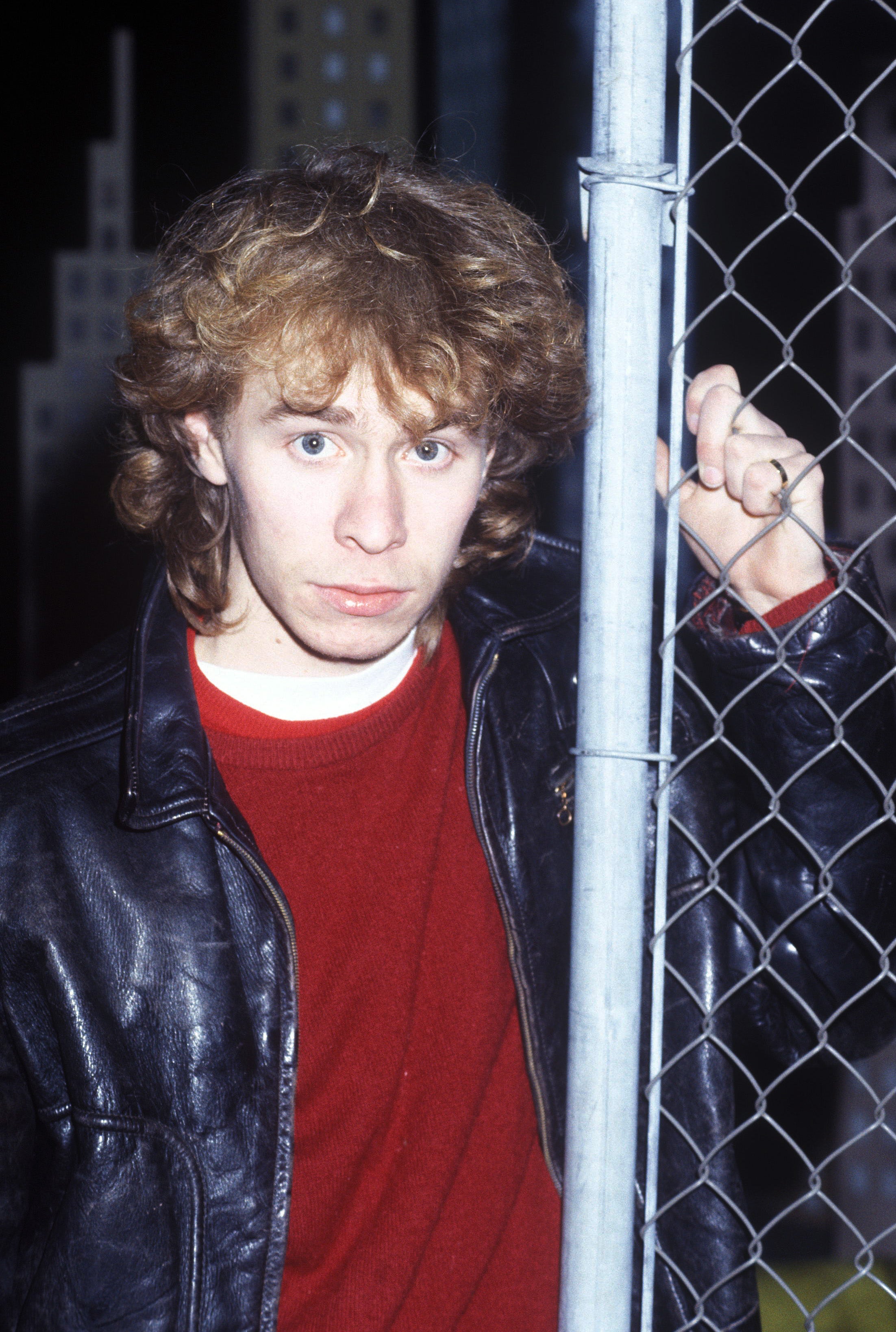
Johnson couldn’t risk cancelling the shows and had to go onstage in Stockholm hours after he learnt of his father’s death. “That was a difficult gig, going onstage and feeling very disoriented,” he says. “Remembering the lyrics and then thinking of my dad. But I’m not the only person who’s had to deal with that. You have to get on with it.”
Johnson is an old-fashioned working-class autodidact of the kind that British pop used to churn out by the bucketful. No A-levels, no degree, just a mind that would not sit still, and a thirst to see the world on his terms. He emerged into a late-Seventies London of grime and grease, when Soho was still dangerous (he remembers, in his teens, being attacked by two men with the intention of dragging him off to appear in porn), and when the city was still lower.
I grew up believing music could change the world. I don’t have that misconception any more
He lives in east London not because he wants to pay over the odds for a yak milk macchiato, but because he’s an east Londoner. He gestures out across the skyline with dismay, at the way it blocks the light and obscures old buildings; he’s been an active campaigner at local council meetings against untrammelled development. The notion of Shoreditch as an epicentre of hipdom does not appeal.
“During the daytime, it’s better,” he says. “It’s quite lively. But nighttime is the problem, because of all the nightclubs. You have all the booze tourists that descend on the area and just piss, vomit and graffiti. We went from having something like 15 pubs to 350 bars.” He knows he sounds like a grumpy old man – the phrase “nighttime economy” drips from his lips with acid – and he speaks of wanting to avoid nostalgia, but the love he has for London comes from having grown up in it. He wants to see what is worthwhile and familiar to him preserved.
“But it’s perpetual, isn’t it? No matter: we all have that little, brief moment in time where we know a certain area we live in, and we get very attached to it, and very deep memories and experiences intimately attached either to the area or the people,” says Johnson, who awoke to the traps of his own nostalgia after reading a book about New York in the 1940s by EB White, complaining about what had disappeared. It made Johnson realise how he might sound.
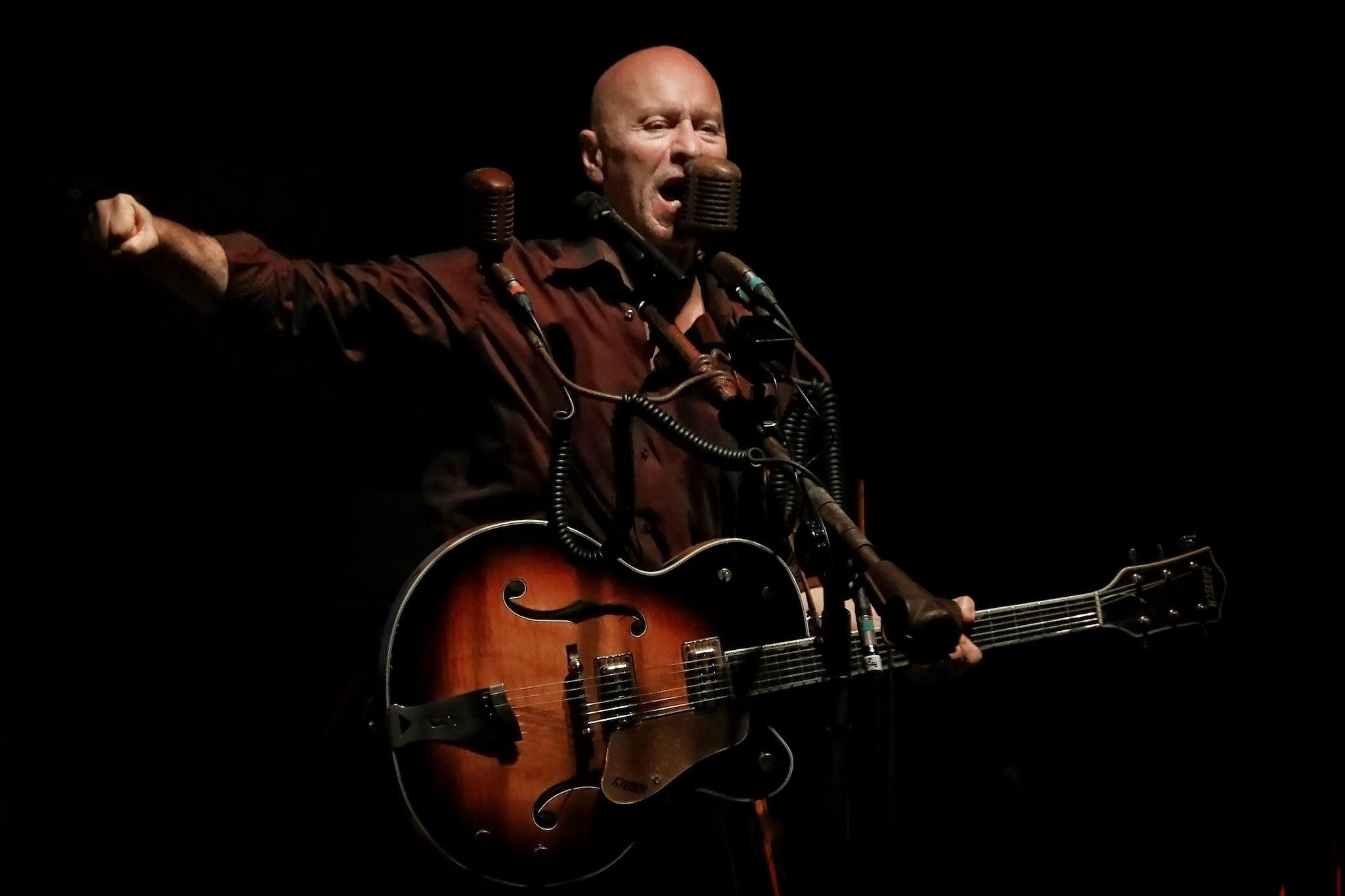
These days, Johnson says, he’s quite an optimistic person. The deaths in his family have softened him. He has more faith in human nature and more hope for the world than his songs – and his stern baritone voice – might suggest. Does he have faith? “You mean traditional religious faith? No.” What about faith in anything greater? I ask. “Well, you could call it a blind faith, an irrational faith, but certain magical things have happened in my life,” he says. “It’s not something I can intellectualise or rationalise.”
In the Eighties, Johnson spent time in New York, a period of his life that he recounts as a haze of drugs and drink. Did he ever partake in any 12-step programmes, those which tend to pivot around a so-called higher power? “I did, when I was in New York, and I’ve got to say I found this incredible sincerity inside. More so than any church I’ve been to. I found it quite emotional, actually,” he says. “There was such vulnerability and honesty among the people there, and I found it very moving. It was everything a church should probably have been in terms of sincerity and warmth and people really trying to help each other. I found it a very powerful experience.”
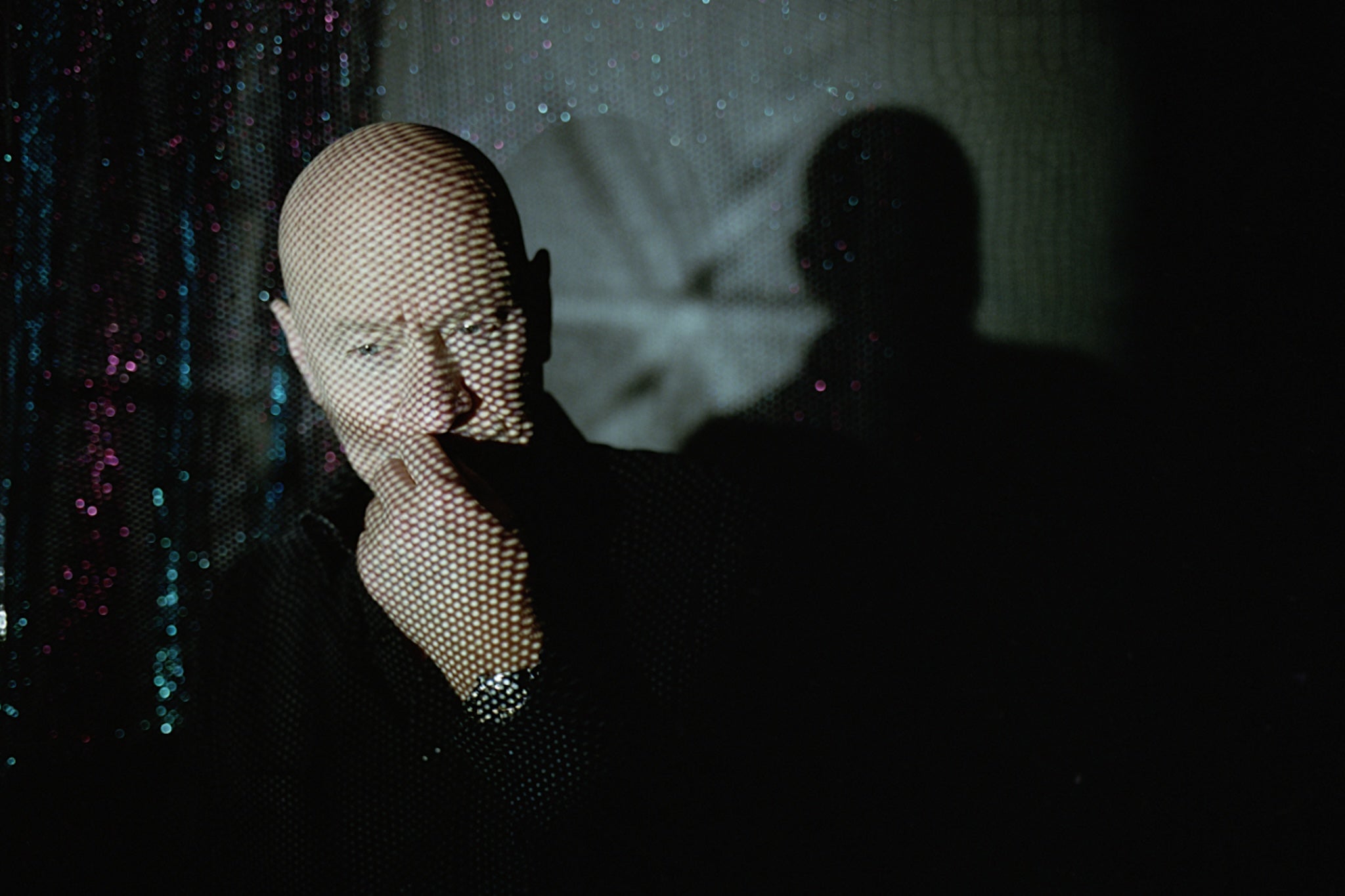
Johnson grew up a pop music obsessive. The Two Puddings, the pub that his dad Eddie ran from 1962 to 2000, regularly hosted bands; the Small Faces played there, and it was the site of David Essex’s first-ever gig. He grew up immersed in music, swept up in its supposed power to transform lives and alter destiny.
Now, he’s more aware of its place in the world and comfortable with it. “I grew up believing that music could change the world,” he says. “I don’t have that misconception any more. I think pop culture is the herbs and spices in the dish; the main nutrition is provided by the engineers of the world and the nurses and the people who do the proper jobs. All we do is provide a bit of the flavour.”
‘Ensoulment’ will be released on 6 September via EarMusic
Join our commenting forum
Join thought-provoking conversations, follow other Independent readers and see their replies
Comments
Bookmark popover
Removed from bookmarks